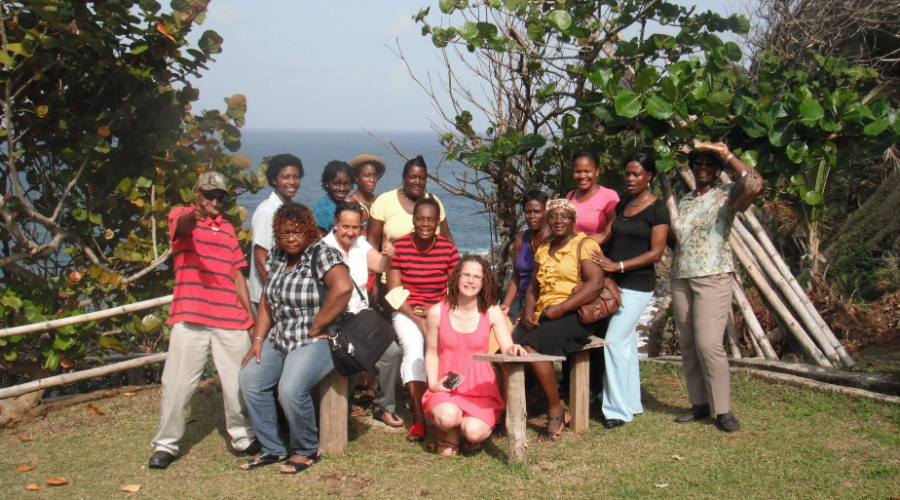DIABETES, DOMINICA AND DIVING!

Golden Ticket Opportunities There are many opportunities available once you have completed your Podiatry degree. Podiatry really is a golden ticket career. In this second blog in our series “What I did with my podiatry degree” podiatrist Anna Evans tells her story of how she came to work with the International Diabetes Association teaching foot […]
GOLDEN TICKET OPPORTUNITIES
There are many opportunities available once you have completed your Podiatry degree. Podiatry really is a golden ticket career. In this second blog in our series “What I did with my podiatry degree” podiatrist Anna Evans tells her story of how she came to work with the International Diabetes Association teaching foot assessment and education and foot ulcer management of patients with diabetes in Dominica.
HOW DID I COME TO BE IN DOMINICA?
DOMINICA AND DIABETES
Diabetes is a growing issue in Dominica. There are increasing levels of obesity associated with the advent of fast food chains in Dominica. A historically high carbohydrate diet with rice, yams etc and much more sedentary lifestyles all contribute to the problem. Medication to control blood sugars is prescribed but it’s not always taken, not taken often enough or not taken in sufficient doses.
Some patients elect to take herbal or “medicinal” teas some days of the week as an alternative, with the anticipated results of sub-optimal control of blood sugars.
DIABETES AND FOOT PROBLEMS
Uncontrolled diabetes can lead to neuropathy meaning “dysfunction of the nerves”, this exposes the individual to the risk of injury, as they have lost sensation, which protects us, so they can get cut or burn themselves without feeling it. Identification and education of these individuals by podiatrists can decrease the risk of ulceration.
Diabetes increases the chance of fat clogging in the arteries of the legs, which also put people at risk of foot ulcers and gangrene. Podiatrists are experts in the evaluation of arterial blood supply and can identify people with issues and prioritise them for regular foot care, reassessment and give advice such as stopping smoking.
IMPLICATIONS OF DIABETES FOR DOMINICA
Whilst primary healthcare is free in Dominica, hospital treatment is fee-paying. Hospital admission can put huge financial pressures on the patient’s family. As an estimate, 40 percent of healthcare costs in Dominica are due to diabetes . Many of those having amputations are still of working age which is detrimental for such a small nation. Grandparents generally look after the children whilst their parents are working abroad and sending money home. With dependents to look after, many individuals with deteriorating diabetic foot ulcers felt unable to go into hospital or would not rest their feet.
AIMS
Since 2012 the Dominica government has been aiming to reduce lower limb amputation in patients with diabetes by 95%. Amputation rates fell in 2013, but have since risen again which makes it clear that more work needs to be done.
WHAT DOMINICA HAS TO OFFER?
Being away wasn’t all work!
During my time in Dominica I took every opportunity to get out and experience what the country had to offer. I learnt to dive, as you can see from the photo. I also went cannoning, trekked to the boiling lake, swam in natural hot springs, jumped off a waterfall, had fun at carnival, watched Calypso and made life-long friends!
Getting ready to dive!
Making life-long friends!
Thank you for stopping by to read our blog,
If you know anyone who might be interested in a career in podiatry -please share Anna’s story!
Until next time
The Podiatry Careers Team
